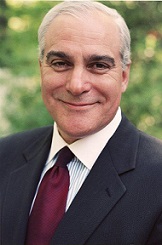The mission and values of the credit union industry over the last 170 years has always been expressed in the service brought to its members. The first credit unions were founded on the ideals of self-help, self-responsibility, democracy, equality and solidarity. They were imbued with honesty, openness, social responsibility and caring for others – the same values that credit unions bring to their members today.
Since Franklin Roosevelt signed the Federal Credit Union Act on June 26, 1934, creating the national system to charter and to supervise federal credit unions, credit unions have been a shining example of quality service, fair prices, community outreach and ethical dealing.
In America, Edward Albert Filene pushed the enabling legislation in Massachusetts where The Massachusetts Credit Union Act became law in 1909. He believed that his employees determined his success more than any other factor. He took care of his workers, mostly women, offering them free health care, hourly breaks and meals. He realized that cooperatives could help ordinary American workers access loans without falling victim to usury, and allow them to save for the future.
It's important for credit unions to communicate and build on this history of authentic values and make a case to millennials and Gen Z, who are now impacting the highest levels of publicly traded corporations. Environmental, social and governance (ESG) issues are important areas of senior management responsibility, and they are part of a board's duciary duty. Considerations include: Sustainability, climate change and other environmental factors, diversity and inclusion, employment practices, employee relations and board independence. In fact, the National Association of Corporate Directors advises that boards consider ESG in their oversight of strategy and risk. Long-term strategy should create value in a socially and environmentally responsible way.
ESG is increasingly important across the generational spectrum. Millennials, born in 1980 to about 1996, recently became the largest segment of the U.S. labor market, while Gen Z, the “digital natives” following millennials, is growing in consumer market importance. This younger group of employees and consumers are environmentally and socially aware. Corporate board members and senior management tend to be baby boomers, born 1946 to 1964, and Gen X, born 1965 to 1980. Progress that boomer and Gen X managements make on ESG will be tracked and commented on in social media's public forums, especially by digitally savvy younger generations. ESG considerations are particularly significant to millennials. Having businesses address them seems a higher priority to millennials than to boomers and Gen X. PR firm Weber Shandwick, found that 47% of millennials believe that CEOs should speak on issues that are important to society, versus 28% of boomers and Gen X. Millennials also said they would be more loyal to their organizations if their CEOs did so. Moreover, millennials put their personal values ahead of organizational goals. “The 2016 Deloitte Millennial Survey” describes how most millennials volunteer, campaign, donate or actively engage in social, environmental or political activities. A majority (56%) would avoid working for organizations that conict with their values, and 70% feel that their personal values are reflected in their employers. Millennials see businesses' potential to do good, with 87% believing that the success of a business should be measured by more than just nancial performance. Rather than just short-term profit maximization, success should be built on a foundation of long-term sustainability.
IBM's 2017 global study, “Gen Z Brand Relationships: Authenticity Matters,” finds that these young “digital natives” have significant market influence, which will only grow as time passes. Gen Z represents two billion people in the global marketplace. Although generally they make limited major purchases themselves, they influence buying decisions of their families and others, giving them economic power well beyond their direct buying power. For Gen Z, brands must show trustworthiness. Organizations must provide quality products and services, and be clear about their values. If brands break their promises, Gen Zers will switch to a competitor. Gen Z cares about authenticity, is not easily swayed by marketing pitches, and have the digital acumen to discern between real and false claims.
The convergence of ESG interests across these demographic groups makes communication of an organization's environmental progress, social activities and linkage to strategy especially important. Today, when millennials and Gen Z are voting with their careers, as well as dollars, communication of your ESG status and vision can be more important than your financial reports.
Make your case and capture this market. It's yours to be had.
 Stuart Levine is the Chairman & CEO of Stuart Levine & Associates, EduLeader LLC. He can be reached at 516-465-0800 or [email protected].
Stuart Levine is the Chairman & CEO of Stuart Levine & Associates, EduLeader LLC. He can be reached at 516-465-0800 or [email protected].
© Touchpoint Markets, All Rights Reserved. Request academic re-use from www.copyright.com. All other uses, submit a request to [email protected]. For more inforrmation visit Asset & Logo Licensing.






